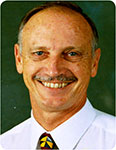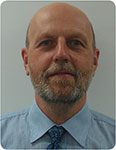CSG water: desalination and the challenge for the CSG industry—developing a holistic CSG brine management solution
Lyvonne Ly A , Ian Fergus A and Steve Page AWorleyParsons
The APPEA Journal 53(1) 193-202 https://doi.org/10.1071/AJ12016
Published: 2013
Abstract
The management of brine, generated from the desalination of CSG produced water, is a key challenge for the CSG industry. In many cases, the cost and technical challenges relating to the management of brine has a greater impact on the economic and technical feasibility of desalinating CSG produced water than the desalination plant itself.
The challenge is to determine the best solution for brine management, given the high salinity of the brine and limited options available for acceptable disposal. This has driven the need for more sustainable options, including using salt recovery processes to recover the salts for beneficial use. Where suitable strata can be identified, brine injection may be considered as a low life-cycle cost solution for brine disposal. CSG brine is particularly high in alkalinity, and as such, brine management options, including acid mine waste neutralisation and recovery of salts (sodium chloride [NaCl] and sodium carbonate [Na2CO3]) are possible. The latter uses selective salt crystallisation, which is generally higher in capital and operating costs, but is offset by the revenue gained from the sale of salt(s). Other brine management options include solar evaporation ponds or zero liquid discharge technology to produce a mixed salt residue that can be disposed through onsite encapsulation or landfill. The feasibility and life-cycle cost of any brine management option depends primarily on the location of CSG sites and the availability of brine management disposal/sale opportunities in reasonable proximity—this is one of the greatest challenges for managing brackish CSG produced water sources, particularly as the CSG sites are in remote inland locations. Further challenges associated with the management of salts recovered include establishing a viable commercial route for the market sale of the salts.
This peer-reviewed paper explores technical considerations, challenges and the life-cycle cost of the brine management options. The emerging trends for desalination and brine management in the CSG Industry will also be featured in this paper.

Lyvonne Ly is an process engineer with more than 10 years’ professional experience in water and wastewater design and engineering. Lyvonne’s experience covers a broad range of projects, both locally and internationally, including concept select studies, feasibility analysis, pilot plant studies, design (concept, functional and detailed) and commissioning of water and wastewater plants. Projects include the Western Corridor Recycled Water Project (WCRWP) Gibson Island Alliance, RioTinto Clermont Mine STP Upgrade, Victorian Desalination Project, and Docklands Stormwater Harvesting and Reuse Project. Lyvonne has also undertaken technical reviews on water and sanitation/hygiene (WASH) and disaster relief projects in southeast Asia and participated in the development of water filtration systems for disaster relief. Lyvonne has specialised knowledge and expertise in microfiltration/ultrafiltration (MF/UF), pretreatment and reverse osmosis (RO) membrane technology, with extensive experience in commissioning, design and operation of membrane treatment plants both nationally and internationally. Lyvonne has worked extensively on the design and selection of treatment processes for centralised/decentralised reuse and drinking water schemes, mining and CSG water management and industrial wastewater management. In her present role as a senior process engineer with WorleyParsons, she is responsible for providing engineering services for project delivery in private and public sectors, including domestic/municipal wastewater, urban development/recycled water, mining, power, and gas industries. Lyvonne is now the senior process engineer for a major gas project in Queensland, working on the multi-criteria assessment of water gathering network configurations, CSG water desalination, residuals/waste handling, brine minimisation, selective salt recovery (crystalliser’s), and brine/salt disposal options for the concept development of water and brine management. Lyvonne aims to achieve registration as a registered professional engineer Queensland in 2013. lyvonne.ly@WorleyParsons.com |

Ian Fergus is a chartered professional mechanical engineer and senior principal engineer with WorleyParsons. Ian has more than 35 years’ experience in the Australian water industry and globally encompassing management, strategic planning, business development, program management, design management, research and development management, project engineering and administration in the consulting and water engineering contracting sectors. Ian is recognised as one of Australia’s leading membrane technology specialists. Since the early 1970’s he has specialised in reverse osmosis (RO) technology for CSG produced water desalination, brackish water and seawater desalination, advanced wastewater reuse, and ultrafiltration membrane technology for clarification and RO pre-treatment. Ian was responsible for securing over 300 RO contracts for the Australian mining, power, oil and gas, and chemical industries, as well as for the Australian defence and public sectors. Ian has worked on several CSG produced water, RO desalination and brine management projects for major CSG Producers in eastern Australia; for example, he was the technology leader for the concept designs and cost estimates for two large CSG produced water RO plants (20 ML/d and 40 ML/d). On behalf of the Australian Government, Ian managed a project on the options for management and use of co-produced water, brines and associated salts and heavy metal concentrates. This work encompassed a review of background information, an overview of present industry and government/academic practice, the alignment of present industry practice with science, and finally the identification of knowledge gaps. Ian presently works as the client’s principal process engineer for a confidential global CSG producer for the front end engineering and design (FEED) and engineering, procurement and construction management (EPCM) delivery of a 100 ML/d RO desalination plant which has a thermal brine concentrator to treat the RO brine concentrate. ian.fergus@WorleyParsons.com |

Steve Page is sector manager for the WorleyParsons Water Engineering Group in Queensland and the Northern Territory. Steve has 30 years’ experience in the water and wastewater industries in Australia and globally encompassing strategic planning, project and program management, engineering and design management, planning studies, water treatment plant troubleshooting, project engineering and operations management. Steve has worked on CSG produced water RO desalination and brine management projects for major CSG Producers in eastern Australia. He has held a number of project director/alliance leadership roles on major water projects in Australia and the UK, including the alliance leadership team representative role for the Gibson Island Alliance (GIA), a key element of the Western Corridor Recycled Water Project. The Gibson Island Alliance was responsible for design, construction and commissioning of a 100 ML/d advanced water treatment plant, which includes preliminary treatment, MF, RO, and advanced oxidation. He is now working as the client’s engineering manager for a confidential global CSG producer for the FEED and EPCM delivery of a water treatment facility and brine management system in the Surat Basin, involving a 100 ML/d nominal capacity RO desalination plant and associated RO pre-treatment (incorporating disc screening filtration for fine solids removal, UF, ion exchange for hardness removal, and polishing cartridge filtration) together with brine concentrator facilities for 9 ML/d nominal capacity. steven.page@WorleyParsons.com |


